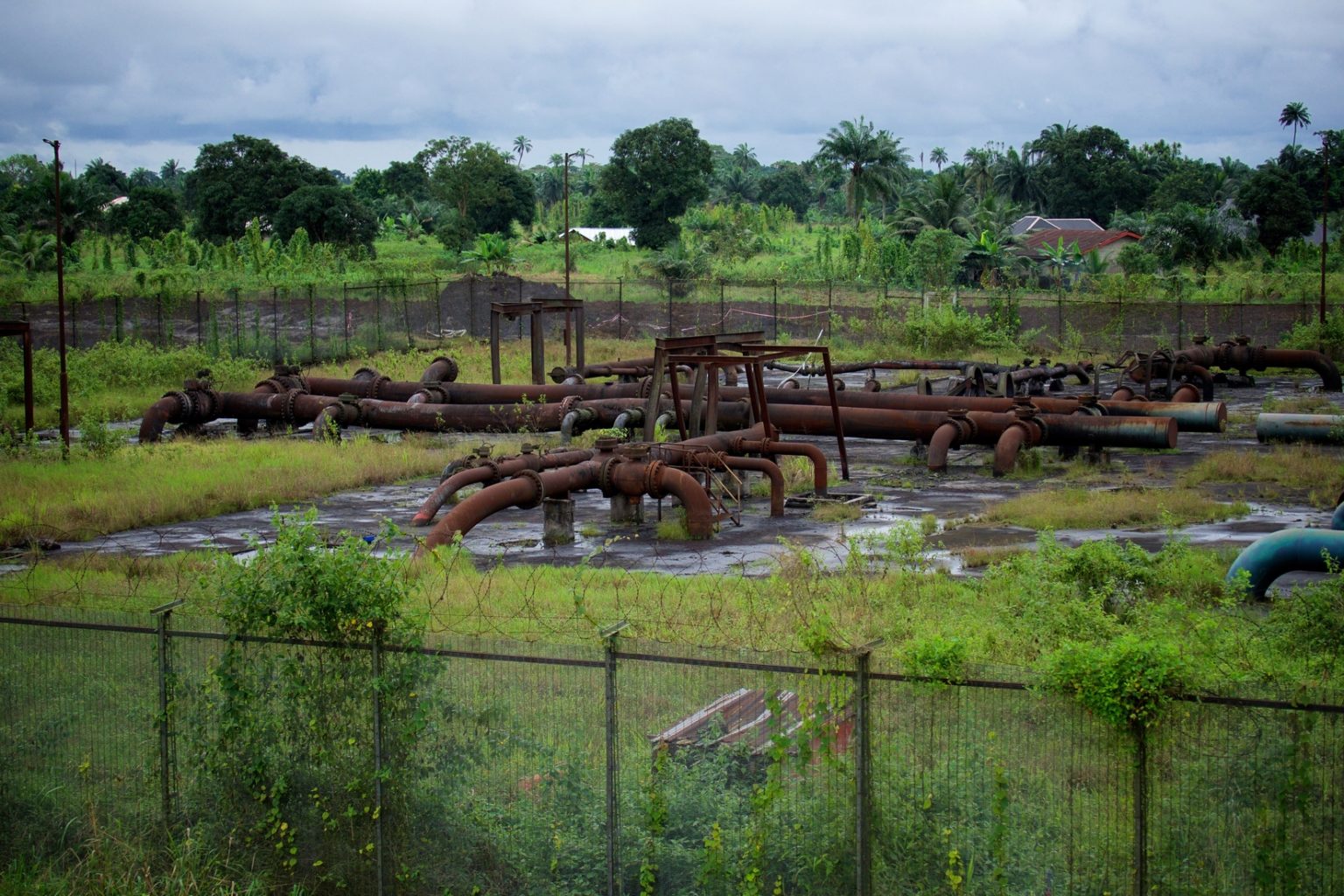Oil giant Shell has won a major battle in the High Court today, after a judge ruled the company had no legal responsibility for the chronic pollution caused by its Nigerian subsidiary in the Niger Delta.
This comes after DeSmog UK revealed the UK foreign office (FCO) agreed to lobby the Nigerian Government on behalf of Shell to protect its oil interest in the Niger Delta.
The UK government did not comment on the case, despite records of catastrophic environmental damage and human rights abuses in the Niger Delta communities.
Legal firm Leigh Day filed the case in the UK last March on behalf of more than 40,000 Nigerians with two claims against London-based Royal Dutch Shell (RDS) and its Nigerian subsidiary, Shell Petroleum Development Company of Nigeria Ltd (SPDC).
Lawyers said they would appeal the High Court judgment, which ruled the Billie and Ogale communities could not seek redress against Shell for the extensive environmental damage caused by oil spills over several years in the English courts. They are confident the judgment will be overturned in the court of appeal.
Judge Justice Fraser told the court the claim held against the London-based parent company Royal Dutch Shell had no prospect of success and so the case against Shell Nigeria could not proceed.
But communities in the Niger Delta argue Royal Dutch Shell exercised “significant direction and control over its’ Nigerian subsidiary” to be liable for the systematic pollution.
DeSmog UK’s investigation revealed how Shell maintained a cosy relationship with the FCO. Minutes of meetings between Shell and the FCO show the UK government was more responsive to the company’s oil interests in the Niger Delta than to the well-documented environmental and human rights crisis.
Campaigner for oil-watchdog Platform Sarah Shoraka, who documented Shell’s failure to clean up Niger Delta pollution over the past five years, said:
“This ruling is a true outrage. Shell will stop at nothing to avoid responsibility for its toxic oil pollution, leaving communities in the Niger Delta to deal with the deadly consequences.
“Their demand for justice does not begin or end with this court case, but as a UK company Shell must be held to account here for its abuses. We stand with affected communities in the Niger Delta and demand that Shell ends its oil pollution in the region.”
Lawyers at Leigh Day believe the ruling was made before full evidence was disclosed and without the judge having heard witnesses about the tight relationship between Royal Dutch Shell and its Nigerian subsidiary.
Leigh Day partner Daniel Leader said the judgment was also inconsistent with recent decisions of other European courts.
The European Court of Justice previously ruled Royal Dutch Shell “in fact exercised decisive influence over their joint subsidiary’s conduct”.
In 2015, the Dutch Court of Appeal ruled Shell’s parent company would be expected to “take an interest “in preventing oil spills since it is “to a certain degree actively involved in and managing the business operations of such [subsidiary] companies”.
Oil giant Shell accepted that the Billie and Ogale communities have been severely polluted by its operations and that it has yet to clean up the oil.
But since November, Shell has sought to prevent the claims from being heard in a London court on the grounds it was not legally responsible for the pollution caused by its Nigerian subsidiary. It continues to argue the claims should be heard in the Nigerian courts.
However, campaigners fear the complexity of the case means it would take at least 20 years for it to be completed in the Nigerian courts.
Paramount Ruler of the Ogale Community King Okpabi said: “Our community is disappointed but not discouraged by this judgment and we are confident that, as in the Netherlands, the Court of Appeal will see things differently.
“Royal Dutch Shell makes billions of dollars of profit each year from Nigerian oil but our communities which host its’ infrastructure have been left environmentally devastated.
“This decision has to be appealed, not just for Ogale but for many other people in the Niger Delta who will be shut out if this decision is allowed to stand.
“Shell is simply being asked to clean up its oil and to compensate the communities it has devastated. That is not an unreasonable request but Shell will not even meet with us.
“Shell underestimate us if they think this judgment will affect our resolve. There is no hope of justice in the Nigerian courts. We still very much believe in the British justice system and so we are going to appeal this decision.”
Spokesman of the Bille Council of Chiefs Chief Temeb said: “If the claim does not continue in the English courts, we have no hope that the environment will ever be cleaned up and the fish will ever return to our waters. Shell will do nothing unless they are ordered to by the English courts.”
Main image credit: © Michael Uwemedimo/cmapping.net
Subscribe to our newsletter
Stay up to date with DeSmog news and alerts






